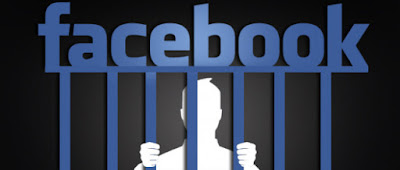“As some Frenchman has said, ‘The stairway of time is ever
echoing with the wooden shoe going up, the polished boot descending.’” -Jack
London
The story of humanity is no different from the rest of the
animal kingdom. It is the story of evolution. And evolution typically occurs at a pace so
slow as to be unobservable by the ephemeral human being. It is human nature to
desire that progress will come swiftly, so that the lifespan of a human can observe
the entire story. But in truth we are individually only able to witness a brief chapter. Only the
very wisest are able to see beyond the current events and characters of the day
and catch glimpses of the overarching narrative. We call them prophets,
philosophers, spiritual leaders. By heeding their words, and acting in faith
that our behavior matters, we play our part in helping humanity towards a
brighter day.
We are continually frustrated by the slow march of progress, so
much so that we attempt to rush it, force our naïve and simplistic ideas of
progress upon a world that is indifferent to our desires. We invest our emotions in
convenient and simplistic movements, and turn to despair when they have not led
us to the promised land. Or worse, we resort to violence in the hope that we
might force the pieces into place. But to use violence to make the pieces fit is to
hack at the pieces to make them unnaturally conform to our simplistic view of the world. It
does not place the pieces where they are supposed to be and only makes the
overall picture more chaotic and ugly. Not to mention the damage done to the individual pieces.
Nevertheless, we evolve. Those who cry out against the injustices
of today are quick to point out that the conditions of slavery and tyranny still
exist, merely under a different name, a different narrative. And they are
of course right, but they ignore the bigger picture.
The staircase upon which the wooden shoe ascends and
the polished boot descends is a spiral staircase. So that as we struggle to
climb upwards we often find ourselves in the same spot we were before we began
our efforts. We do not always see our progress, and indeed our progress does
not always proceed in a straight line. Our progress is not always as undeniable
as we would like it to be because the battle we wage is an existential one. The enemy we face is ignorance, and any pause in our fight against it leads to relapse.
It is our belief that we can go to war against the enemies of
humanity and evolution and put a simple end to them. It does not work that way
and never has. It is like going to war against the tide and declaring victory when
it recedes. The battle is timeless.
It is only when we realize how vast the battle is, how insignificant
our individual struggles and sacrifices are, that we can play our greatest part
in a human evolution that began with the simplest single-cell life and may yet
grow to what the ancients called the promised land. The sacrifices we make and must make will appear futile to us until we realize how immense and beautiful is the story of which we are a part. There are no star roles, but there are ample opportunities to make your mark. Divinity, like the devil, is in the details.
We are in a moment now that seems to be returning us to past
examples of ourselves we had hoped to have left for good. But by obsessing over
our fears, we neglect the opportunities that now present themselves that never
existed before.
Social media is one such opportunity. Social media has
allowed true grass roots leaders to emerge. On a personal level, any artist or
thinker in the last twenty years who has gained my attention has done so through social media and the online communities that are interested in promoting new ideas, new voices, new art, and
new ways of viewing the world. As the printed word once enabled humanity to
share thoughts across vast geographical areas and vast stretches of time, so
too does social media permit humans to spread ideas in ways that were previously
unthinkable. As the printing press enabled thoughts and perspectives to spread
out not merely to the elite but to the average person, the internet places such
opportunities in nearly everyone's hands.
But as I have mentioned, the evolutionary struggle is an
existential one. Just as those who wish to do away with primitive and violent
means of organizing society work towards progress, those who desire to rule
through force seek to control the means of communication. Censorship is
nothing new, it is amply evident throughout history. But humanity’s desire for progress
has historically been greater than its fear of where it would lead. Social
media has always been more or less under the control of the elite, but they are becoming increasingly aware of the dangers that social media presents to them. They
will do what they can, as people who desire to wield power over the masses have
always done, to maintain control over what opinions and attitudes are available
to the people whose approval is needed for their continued grip on wealth and power. I do not expect them to
succeed in suppressing this newest method of transmitting information any more than they did when they tried destroying printing presses. But neither am I so naive as to believe that the struggle for progress will come easily or once and for all. Evolution, after all, is a struggle for the survival of the species. We need to be aware of that, and that is not an idea that the shapers of public opinion are eager to share with you.








